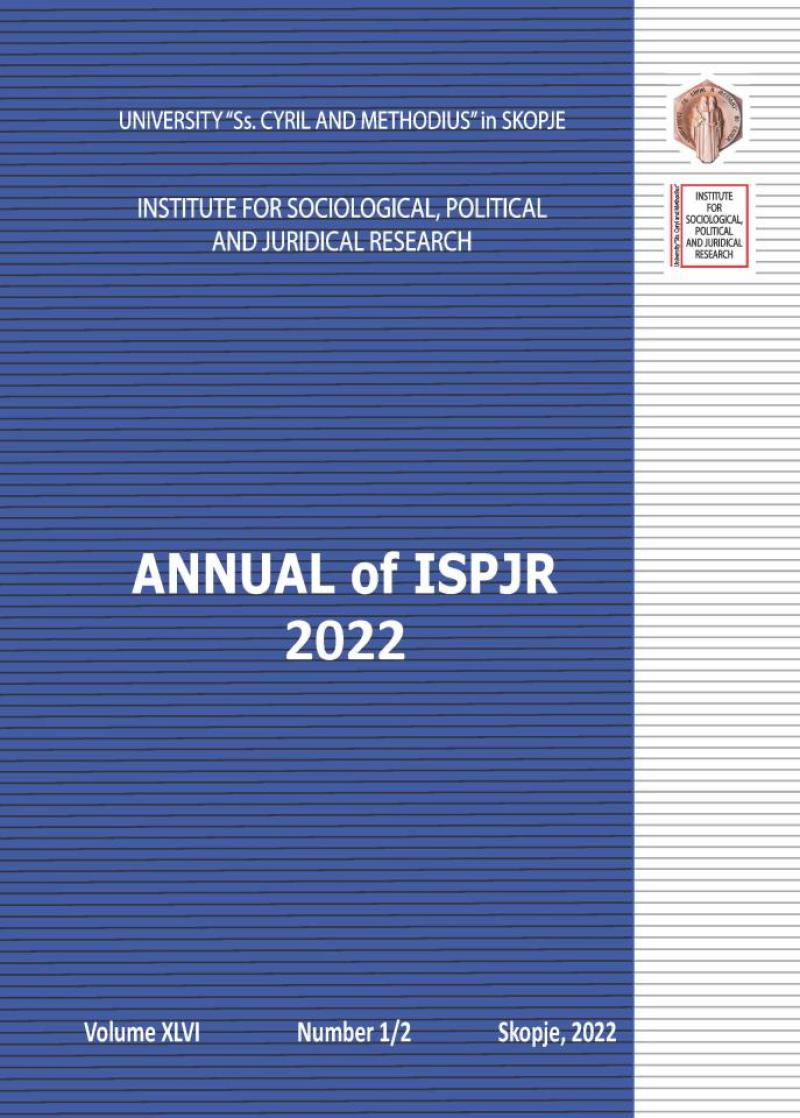Dear Readers,
In post-pandemic times, the scientific and professional focus re-shifts from the thenpressing
pandemic societal issues, primarily health-related, economic and democratic ones,
to the lasting issues of overall social advancement. Yet, the impact and lessons from the crisis
is still borne in mind. Subsequently, the Institute for Sociological, Political and Juridical
Research in Skopje is no exception from these global endeavours as far as its thematic
scientific determination is concerned which partially reflects in the contents, accepted to be
published, in this issue of the Annual.
The Annual is set within broader topical framework, however, the legal perspectives
prevail in this instance. To expand, an article provides significant insights of the conundrum
of the value of life through the prism of legal provisions and practices of euthanasia in the
most contemporary sense. Another one sets the course for de lege ferenda regarding the
ever-relevant issue of Macedonian criminal treatment of children by previous analysis of
the retributive versus restorative justice concerning child delinquency. The third legal article
is focused on depiction of the property relation of spouses with a chronological continental
overview. Consistent with the aspiration towards modernity, the Annual also contains an
article providing the explication of the legal framework of the European Union’s space
policy contextualized with the international law and the rules for legal supremacy.
Moving further along towards more interdisciplinary works, there is an article treating
the phenomenon of radicalization of youth, with accent on its reasons for occurrence, by
also elaborating the global, European and Macedonian context of the possibility for its
countering, mainly through youth education. Another article identifies the efficiency of the
performance management within the local government in the Republic of North Macedonia,
culminating in providing general parameters for improvement in this sphere. Then, the
topic of creating extra income during a pandemic along with the health systems functional
integration perspective also contributes to this Annual’s issue.
A single article elaborates upon the relation between the socio-demographically
determined morality and the religious features of the population of the Macedonian Ohrid-
Struga region. On a more global scale, another article reflects on the persecution of religious
minorities and various governmental and other subjects’ discriminatory acting in the context
of the last pandemic crisis.
Given these versatile works, on behalf of the Institute, I express my gratitude to the
authors and reviewers for their contribution to this volume of the Annual and I hope that the
reading audience would find in it relevant aspects for professional knowledge enrichment.
Editor-in-Chief
Bojana Naumovska, Ph D
Конкурс за доделување на стипендии за втор циклус на студии

